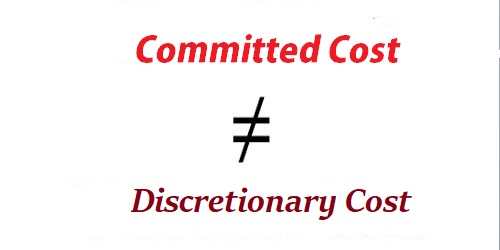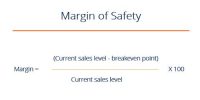A discretionary cost is an expenditure for a period-specific cost or a fixed asset, which can be eliminated or reduced without having an immediate impact on the reported profitability of a business. The following can be considered discretionary fixed costs: Advertising campaigns, Employee training, Investor relations etc. A committed cost is an investment that a business entity has already made and cannot recover by any means, as well as obligations already made that the business cannot get out of.
The difference between committed cost and discretionary cost are given below –
Committed cost
- Committed fixed costs usually arise from the possession of facilities, equipment, and a basic organization; large, indivisible chunks of the cost that the organization is obligated to incur or usually would not consider avoiding.
- Committed fixed costs are those costs which are arises from yearly appropriation decision by the higher management authority.
- Committee fixed costs include mortgage or lease payment, interest payment on a long-term debt, property taxes, insurance, and salaries of key personnel.
Discretionary cost
- Costs determined by management part of the periodic planning process in order to meet the organization’s goals.
- Discretionary fixed costs are those costs which are arises from yearly appropriation decision by the higher it management authority for repairs and maintenance cost, advertising costs research and development cost etc.
- Discretionary items such as advertising and promotion costs, public relations, research, and development costs, charitable donations, employer training programs, and purchased management consulting service.















